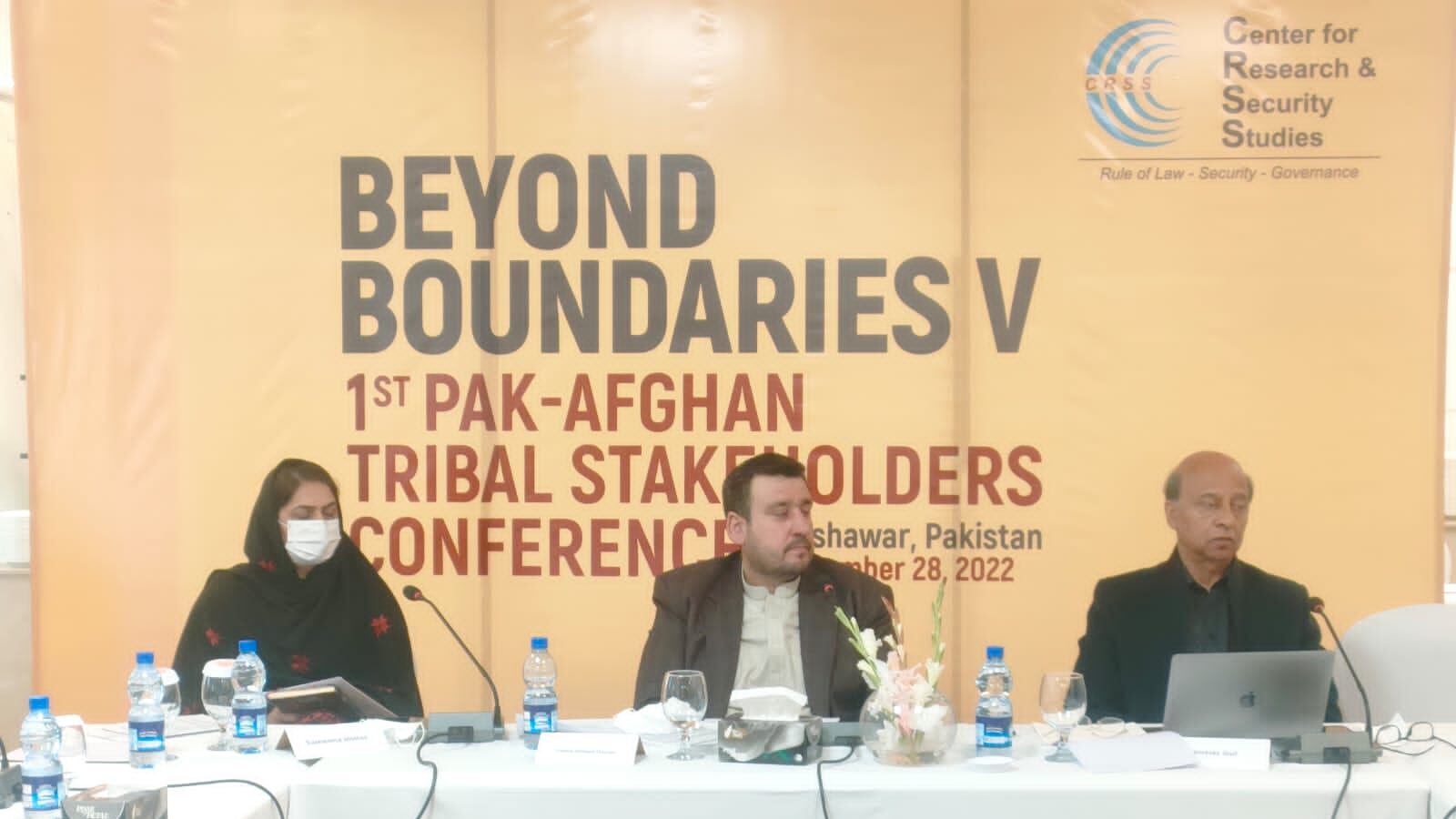Context
The 1st Pak-Afghan Tribal Stakeholders Dialogue was organized to elicit Stakeholders’ (tribal leaders and chieftains from Pakistan and Afghanistan’s border areas) opinions on girls’ education, women’s right to work, and inclusive governance regime as these issues remain the major hurdles since the Afghan Taliban returned to power in August 2021. The stakeholders/participants were identified after an extensive mapping exercise through community contacts and opinions by experts from the region on the tribal regions’ influencers, the nature of social and political issues, and the state of infrastructure.
The conference agenda focused on the potential role of tribal stakeholders in addressing PakAfghan bilateral challenges concerning economic connectivity, peace, and security, and advocating for the rights of girls and women in Afghanistan, particularly those of education and work.
Critical Analysis
The dialogue resonated with conflicting, though largely conservative views on the aforementioned issues. One of the recurring arguments regarding education centered on tribal tradition; most of the participants from both sides argued that impediments to girls’ education and inclusion are not entirely due to religious factors but are also due to cultural and tribal factors too. Considerable support for the status quo also came through such as the restoration of former FATA regions (Pakistan) to enable ease of movement and trade for the tribes on both sides of the border. The abolition of FATA (in May 2018) took away substantial authority from the tribal elders which – they INSIST – could have helped them intervene with Afghan Taliban on issues such as female education and employment.

Sense of Meeting
These tribal elders, nevertheless, remain as of now the most relevant actors for engagement with the Kabul regime as far as discussions on female issues as well as regional peace, security, and trade and transit trade are concerned. If engaged effectively, their influence can be utilized since most of them do not align with the militants or extremist ideologies, rather they ask for governments’ support to eradicate the radical mindset from the region. They generally supported normalizing girls’ education as far as it is within cultural and religious norms. Some tribal stakeholders deemed the issue of refugee influx more of a Taliban issue than Pakistan’s since they believe that the current government is unable to provide socio-economic support to its people. Among the Afghan participants, however, some believe that the ill-treatment at the border and other issues faced by refugees inside Pakistan must be addressed. Tribal leaders demanded revamping of border markets and allowing free movement of the people per the constitution.

Recommendations
Based on the thorough discussion and insights on the aforementioned issues, the participants from both sides tabled the following recommendations:
- Women’s Inclusion and Girls’ Education
- The Emirate must ensure that the girls have access to schools, universities, and workplaces provided there is segregation, and they observe purdah
- Women must be allowed to work but in “decent” professions as officers, doctors, teachers, etc.
- Both countries should deploy women police officers at border areas to ease the process of immigration
- Economy, Trade, and Transit
- Pakistan and Afghanistan must have a consistent trade policy
- Pakistan should extend its banking and commercial expertise to Afghanistan to optimize the country’s banking and transaction system-
- The government should resume issuing trade cards so the volume of trade can increase
- Custom points should be removed, and a tax-free corridor should be created
- Border markets should be established on modern footings like those of Turkey and Iran
- Border crossings should be facilitated by instating more qualified personnel and state-of-theart equipment
- Regional Cooperation, Peace, and Security
- A joint committee of Pak-Afghan tribal leaders to be constituted to meet occasionally and discuss matters of mutual interest. This will maximize the prospects of implementation of respective recommendations whilst putting forth to the relevant government auth orities
- Governments should mainstream tribal stakeholders’ decision-making and inclusion in core matters 4. Refugees and Border Inhabitant Rights
- Visa restrictions and delays should be addressed as a priority
- Permanent residence and or long-term business visas along with residence should be offered to Afghans who want to live in Pakistan permanently
- Easement Rights Act should be placed in practice for the inhabitants of border areas.
